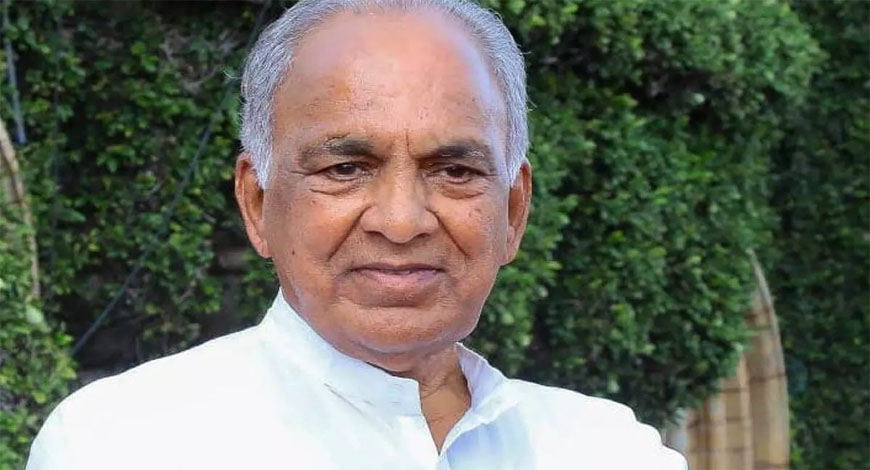Karnataka is positioning itself at the forefront of India’s quantum computing revolution, leveraging its presence in sectors like IT, aerospace, defence, biotech and healthcare industries, which are expected to be early adopters of quantum solutions.
NS Boseraju, Minister of Minor Irrigation and Science & Technology, Government of Karnataka, discusses initiatives to establish the State as the Quantum Hub of India with ₹48 crore invested in the Quantum Research Park at IISc and an additional ₹3 crore allocated to host the Quantum India Summit 2025. Additionally, a second nodal research and training centre is being planned in North Karnataka to expand the quantum ecosystem.
Why was Karnataka chosen as the location for India’s Quantum Hub? What are the key advantages it offers?
Karnataka already leads the country in advanced service sectors like IT, biotech, aerospace and digital healthcare, all of which will be end-users of quantum technologies. Establishing a quantum ecosystem here means immediate and local demand, and the capability to export quantum solutions nationally and globally. Bengaluru has scientific institutions like IISc, JNCASR, RRI, global IT companies and defence establishments like ISRO, DRDO. Karnataka’s investment in the Quantum Research Park at IISc and the recent support to host the Quantum India Summit 2025 demonstrates its vision and capacity to lead India’s quantum journey.
The defence establishments, among others, have a growing need for quantum computing and are well-positioned to adopt these services. The market potential is significant, with Bengaluru hosting a strong mix of public sector undertakings, research institutions, and global enterprises, including several Fortune 500 companies.
While the Centre and several States are prioritising AI and semiconductors, what is driving the focus on developing quantum technology?
Quantum computing can ideally solve problems that classical systems would take years to address. This will transform domains like public sector logistics, defence simulation, medical diagnostics, cryptography, materials science and financial modelling. The State is already working towards building innovation cities like KWIN-City and investing in fields like AI, semiconductors and smart manufacturing. Quantum will be the bus that carries and accelerates these missions. We do not view quantum development as a siloed initiative, but as an integrative force. Its applications in quantum-safe cybersecurity, precision agriculture, and AI-driven logistics will greatly reduce time-to-target for our digital and scientific ambitions.
How will the proposed Quantum Hub align with Karnataka’s innovation and digital infrastructure goals?
Quantum technology will help strengthen and accelerate Karnataka’s broader digital innovation roadmap. By embedding quantum into the State’s broader technology vision, we can reduce redundancies, shorten innovation cycles, and achieve more transformative outcomes sooner than usual. With this initiative, Karnataka intends to be a leader within India and aims to carve its footprint on the global quantum stage. We had a few meetings and discussions with industrialists and entrepreneurs. They were very enthusiastic about developing quantum technology in Bangalore.
What inter-departmental collaboration is planned to drive the hub’s objectives?
The Department of Industries will focus on enabling indigenous quantum hardware and chip manufacturing. Given the lessons from India’s delayed entry into the semiconductor race, the State is determined not to miss the bus on quantum manufacturing. The Department of IT/BT and Science & Technology will spearhead the start-up ecosystem and innovation pipeline. Their mandate includes incentivising IP generation, funding early-stage quantum ventures and promoting cross-disciplinary R&D. The Department of Higher Education will transform curriculum design and skilling. Plans are underway to introduce quantum science modules in pre-university courses, making Karnataka the first Indian state to do so and to launch specialised degrees and certifications in quantum computing, communication and sensing.
What kinds of subsidies or incentives is the Government of Karnataka currently offering?
Karnataka remains an industry-friendly State, even in policy. We are open to offering land, subsidies and infrastructure support to players in the quantum and advanced tech space. While other States may offer land, they often lack the skilled human resources we have here.
Of course, infrastructure in cities like Bengaluru poses challenges in terms of land, power and water. Entrepreneurs have already shared some of these concerns and we welcome more feedback. We’re consolidating their suggestions and will take them up with the government, including the cabinet.
Are there plans to partner with academic or research institutions in Karnataka for talent development in quantum technology?
The Department of Industries will focus on enabling indigenous quantum hardware and chip manufacturing. Given the lessons from India’s delayed entry into the semiconductor race, the state is determined not to miss the bus on quantum manufacturing. The Department of IT/BT and Science & Technology will spearhead the startup ecosystem and innovation pipeline. Their mandate includes incentivising IP generation, funding early-stage quantum ventures, and promoting cross-disciplinary R&D. The Department of Higher Education will transform curriculum design and skilling. Plans are underway to introduce quantum science modules in pre-university courses, making Karnataka the first Indian state to do so and to launch specialised degrees and certifications in quantum computing, communication, and sensing.
What kind of central support or investment is being sought for this initiative? What is the expected timeline for rollout?
As of now, Karnataka has not formally approached the Union Government for financial support. Instead, we are in the final stages of developing a comprehensive Quantum Roadmap, which will be completed in the next 2–3 months. This roadmap will include budget estimates, infrastructure requirements, talent development targets, and use-case scenarios. There will be a phased rollout strategy, guided by a Quantum Task Force comprising domain experts. Once this framework is finalised, Karnataka intends to engage with the National Quantum Mission (NQM) to align our efforts and seek strategic and financial support. The Hindu BusinessLine

